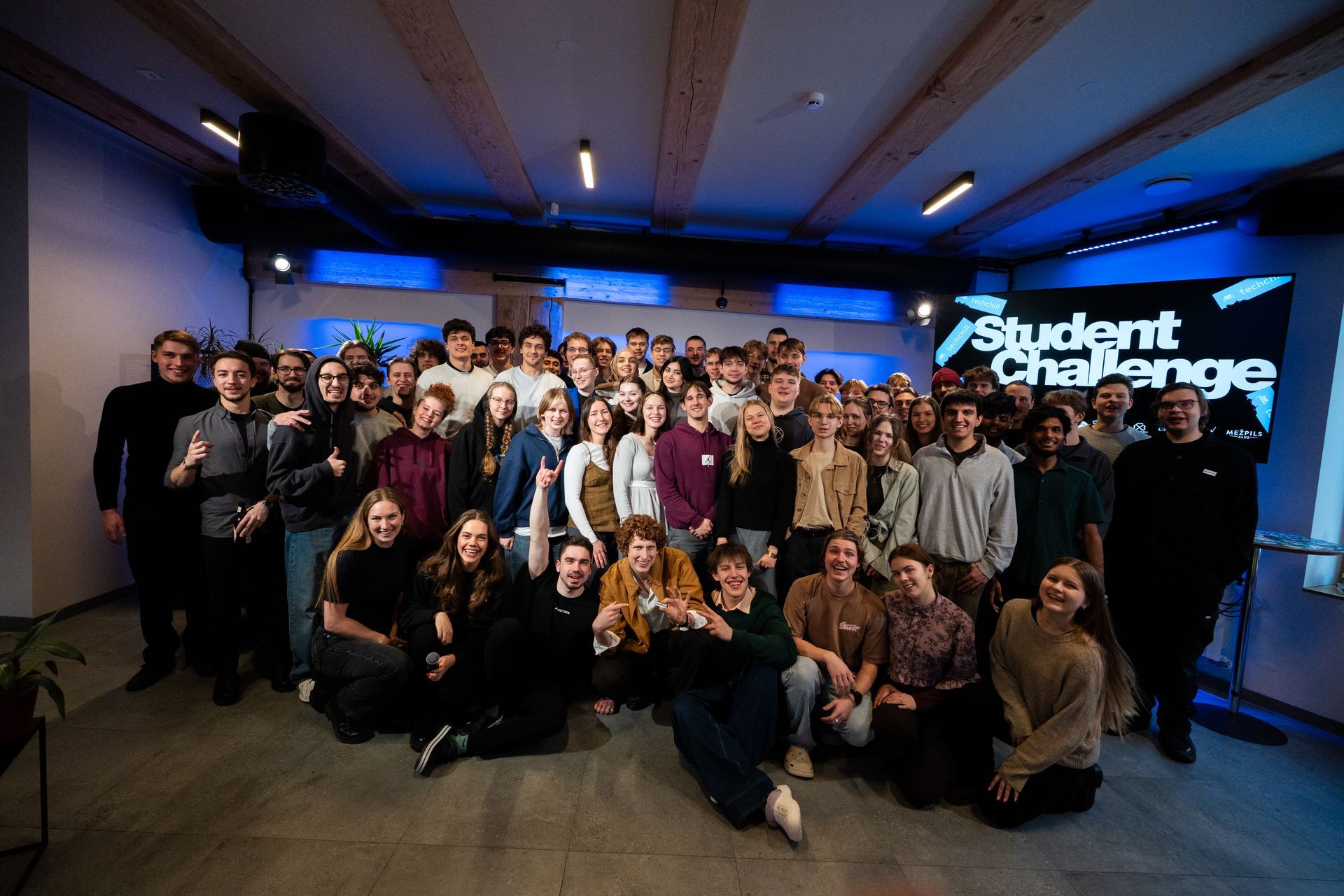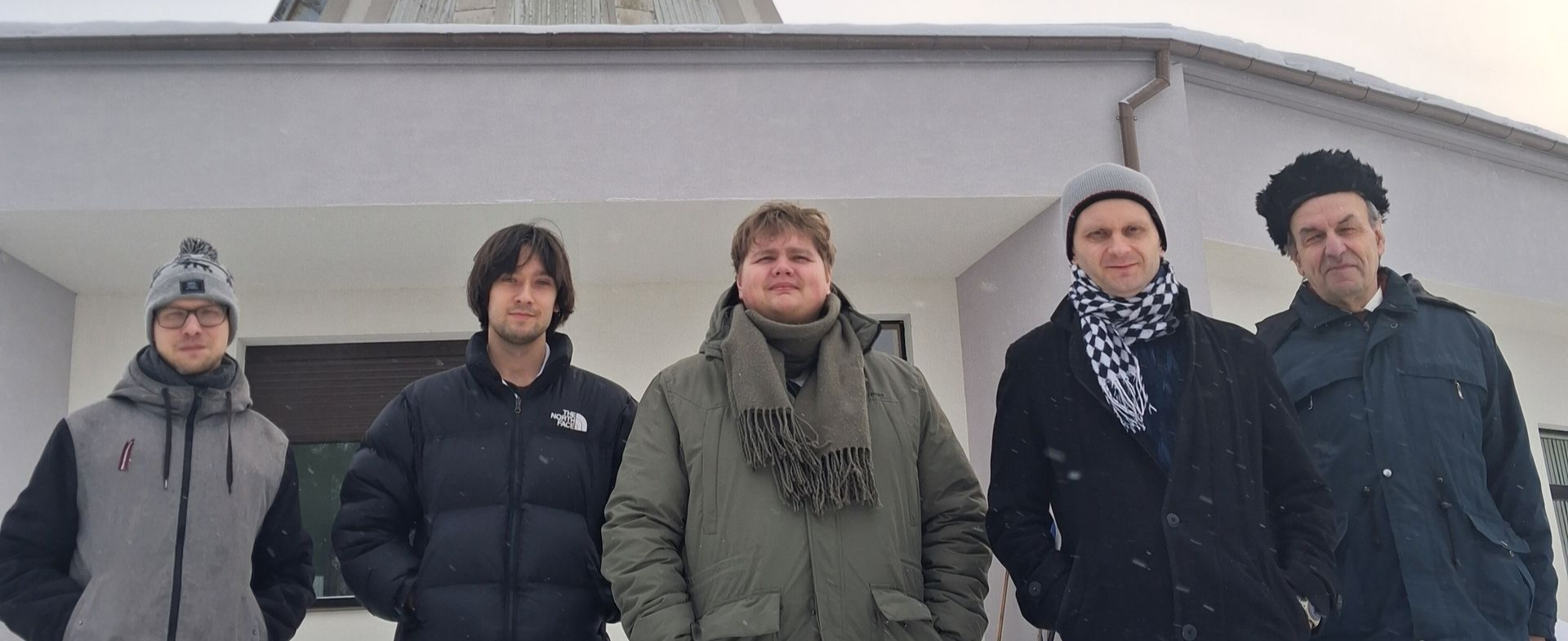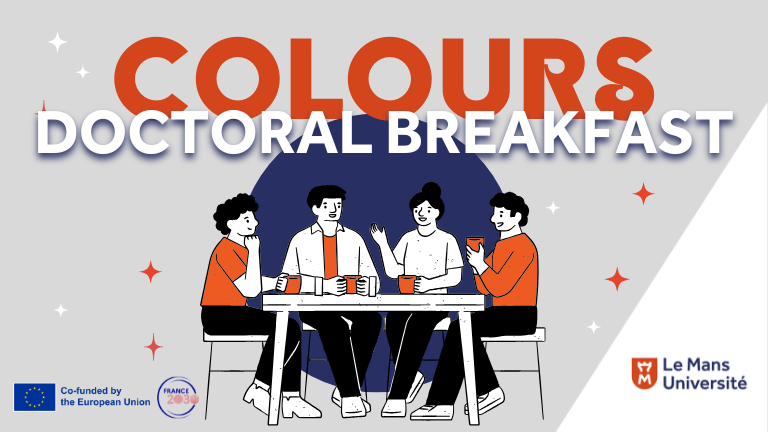entspils University of Applied Sciences conference University of Tomorrow and Christmas Conference has concluded
On 10 December, in Ventspils University of Applied Sciences (VUAS) an international conference University of Tomorrow took place. Concurrently, the Modernisation Conference, which VUAS organised for the first time, and the Christmas Conference which is an annual scientific activity event at the university, took place. Considering the restrictions set by the government, University of Tomorrow took place remotely, thus giving opportunity for everyone to follow the course of the conference.
University of Tomorrow was opened with the introductory words of VUAS rector Professor Kārlis Krēsliņš, marking the growth of VUAS in the direction of study process modernisation and scientific activity. The scholarship of Professor Andris Klauss was also presented at the beginning of the conference. The patron of the scholarship Mārtiņš Lauva admitted that it was difficult to choose the scholarship receiver this year because all the candidates were worthy of the scholarship. Upon making the decision, a student of the Faculty of Translation Studies, Agate Freiberga, received the scholarship.
The first part of the conference focused on the quality of studies, its supervision and management in higher education institutions, teaching methods and the growth of the academic staff. Also, the audience was acquainted with the project Improvement of the Quality of the Content of the Ventspils University of Applied Sciences Study Programme, Improving the Efficiency of the Use of Resources, and Ensuring Better Governance. The conference University of Tomorrow was organised within the framework of this project. Maija Cēbere, Deputy Head of the Science and Development Department of VUAS, spoke more about the news of this project. Vice-rector of the Business University Turība associated professor Daina Vasiļevska shared Turība`s experience in ensuring good governance and study quality. It is worthwhile for all lecturers to get acquainted with the associate director of the RSU Centre for Educational Growth Prof. Nora Jansone-Ratinika`s presentation which reviewed various teaching methods and application possibilities in the study process, with emphasis on distance learning. The first part of the conference was concluded by Brigita Kukjalko, a senior expert of the Structural Funds Department of the Ministry of Education and Science who presented the upcoming changes in the academic career. These changes promise to organise the positions of the academic staff and their distribution.
As the conference continued, viewers could choose to continue following the Modernisation Conference or join the VUAS scientific event – the Christmas Conference. Those who chose the first option heard nine different presentations about the distance learning experience, opportunities for improvement and challenges faced by both lecturers and students. Along with these topics, the Rector of VUAS outlined the implementation of the new doctoral model in VUAS. Experts of the Study Department of VUAS Gints Dreifogels, Toms Urdze and Ivo Čapiņš presented the currently available distance learning tools at VUAS. The new Chairperson of the VUAS Student Council Lāsma Lubāne analysed the results of the student survey on the technical provision of the distance learning process, concluding that VUAS students are satisfied with the technic equipment of the university, however, some improvements are still to be made. Guntis Čoders, Deputy Director of the study programme Start-Up Management, also participated in the conference, talking about the importance of coaching and competence education. Competence-based education is one of the theses that has been said a lot on a national scale, so it was interesting to hear the implementation of this model in the programme Start-Up Management. Thanks to the remote format of the conference, without any long trips, Professor Martin Waiguny, Director of International study programmes at the University of Applied Sciences Krems, was also able to participate. The professor shared his experience of implementing distance learning at VUAS cooperation university in Krems and suggested specific things that could be implemented by VUAS. Two guest lecturers from the Faculty of Translation Studies (FTS), Goksel Ozturk and Murat Bayrak, from the Bursa Technical University, Turkey, compared the traditional full-time study process with the current situation, as well as highlighted the challenges of distance studies in linguistics. Continuing in the field of linguistics, the Dean of FTS Artūrs Viļums presented two digital research tools in linguistics which are used more and more often by students at the beginning of the new study format. VUAS IT faculty was also represented at the conference. Its dean, Vairis Caune, gave an insight into the daily life of the faculty and how the studies are currently organised, which online tools help lectures to happen and how to move forward so that the study process does not lose the quality during distance learning. The closing speech of the conference was from the lecturer of the Faculty of IT Jesus Cazares, who spoke with the personal motivation, inviting students and lecturers to adapt to the new format and to find better solutions to improve the quality of teaching.
The Christmas Conference brought together researchers and scientists from VUAS to look back at the achievements at the end of the year. Introducing colleagues, students and others to the results of their research – both theoretical and practical – ten researchers from Ventspils University of Applied Sciences participated in the conference. The fields represented in the reports were various – engineering, natural sciences, linguistics and translation science, as well as economics and business. The main motive of the conference was the development and vision for the future. The director of Ventspils International Radio Astronomy Centre (VIRAC) Aleksejs Klokovs in his report Space Centre in Latvia and Space Industry Development provided a vision for further development of VIRAC. The leading researcher of VIRAC Manfrēds Šneps-Šneppe further analysed the development perspective. Researcher Vladislavs Bezrukovs gave two presentations – one on current events in the VIRAC radio observations and the other Friendyno - small power generator with the rotor linear motion – on his practical research. Two young VIRAC researchers in electronic engineering Andrejs Dzelme and Emīls Vēveris presented the results of practical research in a report Mobile Device Charger for a Bicycle Generator. The young researchers proved the ability to perform and present their research independently. Jesus Cazares, a lecturer at the Faculty of IT, also spoke in this part of the conference presenting his report A Method for the Composition of Piecewise Defined Functions. Representatives of all three faculties of VUAS also presented interesting and topical research. Valentīna Semakina, a visiting lecturer at the Faculty of Economics and Management (FEM), presented a report Dynamic Stochastic Models of General Equilibrium prepared with the co-author professor Sergejs Hiļķevičs, the lead researcher at VIRAC. FTS representatives Baiba Egle and Ralfs Raitis Vecmanis presented a report Latvian Scientific Language Database – Development and Content. The final report of the conference given by the Faculty of Translation Studies guest lecturer Elizabete Kadakovska Interaction of Medical and Translation Sciences was relevant in the context of the current situation. The conference provided an optimistic view of VUAS research and a chance for experienced and young VUAS researchers to meet.
Share on other platforms
Other news












